Thank you for helping to
Keep the conversation going
Here are some ways we can help you.
We hope you enjoyed The Castle Conference: Digital Wellbeing for Young People.
We know you want to keep the conversation going so we have created a page to help you do that.
The page will be updated with slides and videos when they are available.
Watch the Castle Conference Catch Up
We hope that The Castle Conference inspired you, got you thinking and talking about the topic of Digital Wellbeing. We really hope you have been talking about the conference to your friends, family and colleagues.
We certainly are and we arranged it!
The Castle Conference Catch-Up was a chance to keep talking, a chance to share your thoughts, a chance to find out what questions we have been asked since the day and a chance to ask us new questions.
Andy & Lucy
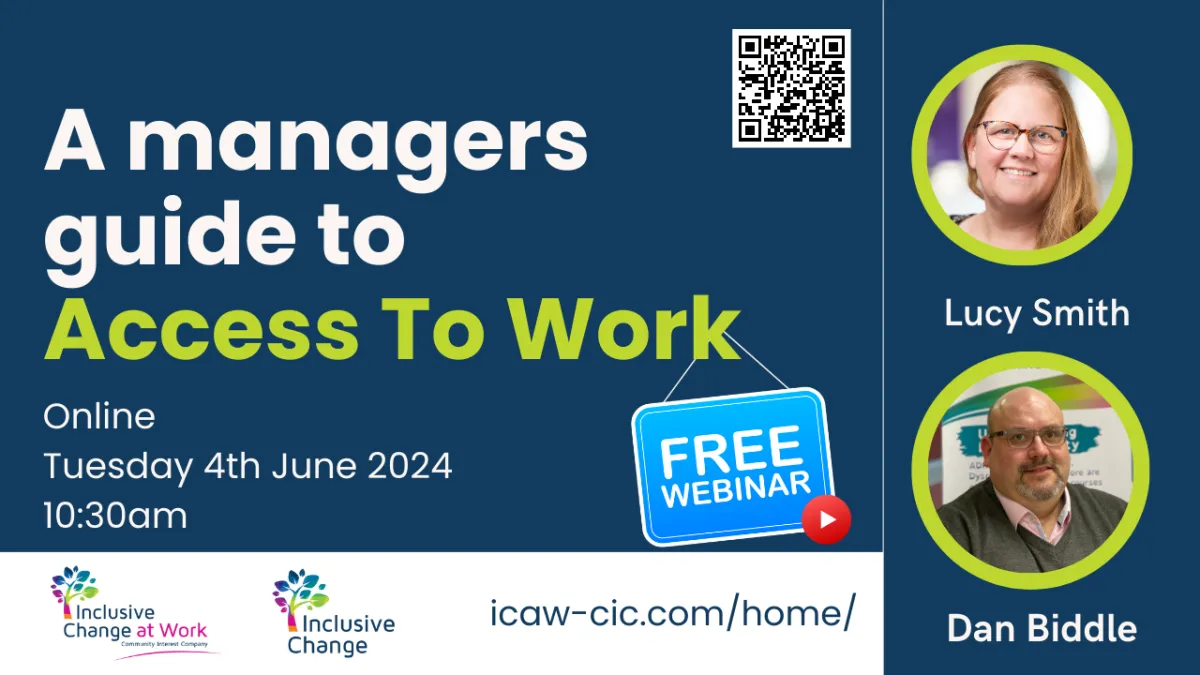
4th June 2024
Free Webinar
Join Lucy & Dan from Inclusive Change At Work CIC who will be discussing how to support disabled and neurodivergent employees to thrive at work.
Recap from the event
We have combined the slides into a video for you to rewatch
This is only the slides - no audio. Videos will be uploaded soon.
Speaker Videos
We will be uploading videos from The Castle Conference as soon as they are available.
COMING SOON!
Resources
Links and downloads for you
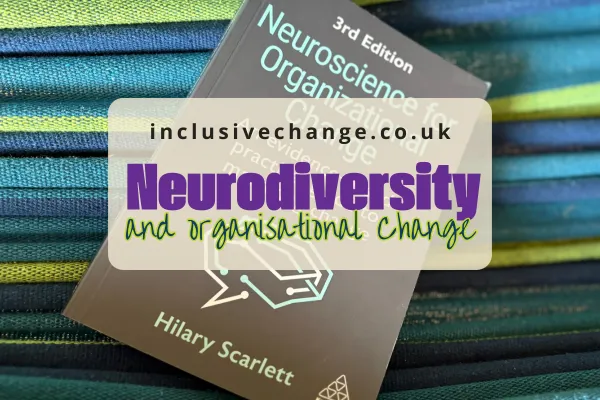
Clear communication & coaching: Essential tools for change
Clear Communication & Coaching: Essential Tools for Neuro-inclusive Change
Change is one of the most talked-about, and feared, parts of organisational life. But while strategy, structure, and systems tend to get all the attention, it’s how we communicate and support people that determines whether change will succeed.
In this second blog of our four-part series on neuroinclusive change, we explore two critical enablers of successful, inclusive transformation: clear communication and coaching. Both are especially vital when supporting neurodivergent team members, and both can dramatically reduce resistance, stress, and misunderstanding.
Why Clarity is Key
For neurodivergent individuals, particularly those with autism, vague language can create real obstacles. Where others may infer meaning or intention, an autistic person may not.
Let’s take this example:
“Wouldn’t it be great if you wrote up the notes from this meeting?”
To a neurotypical colleague, that might sound like a gentle suggestion. To an autistic person, it might simply register as a rhetorical comment. They might agree it would be great, but not realise it was a request. When the task doesn’t get done, frustration follows.
Instead, say:
“Can you write up the notes from this meeting by 3pm tomorrow? That way, we can include them in the weekly update.”
This version is clear, direct, time-bound and includes the why, which is crucial for buy-in.
Why Coaching Creates Space for Understanding
Coaching supports both sides of the change equation. For neurodivergent employees, coaching can offer:
Clarity about what’s changing and why
Space to explore how it affects them
Strategies to manage the transition and maintain performance
For managers and change leaders, coaching can help them:
Understand unexpected responses or behaviours
Reframe assumptions
Develop language and strategies that reduce tension
A manager doesn’t need to know, or guess, whether someone is neurodivergent. But they do need to notice when someone is struggling and offer practical support. Instead of speculating, they can say:
“I can see this part of the change seems challenging, how can I support you with it?”
This approach is inclusive, respectful, and proactive. It supports the individual without needing a label.
Emotional Responses: Rejection Sensitivity and Miscommunication
Rejection Sensitivity Dysphoria (RSD) is a term many leaders are still unfamiliar with, but it’s common among people with ADHD and other neurodivergent profiles. It means that even small cues - such as a perceived shift in tone, facial expression, or criticism - can feel intensely personal.
In a change setting, where uncertainty is high and relationships are shifting, RSD can result in:
Strong emotional reactions
Avoidance or shutdown
Sudden departures from meetings or conversations
These responses can be misunderstood as overreaction or even hostility. Coaching helps both parties understand these moments for what they are: emotional responses to perceived threat, not a lack of professionalism.
The Science Behind It
Neurodivergent brains often process information and emotion differently and understanding this can shift the whole tone of your change programme.
In Neuroscience for Organizational Change, Hilary Scarlett explores how the brain responds to uncertainty, threat, and communication style. Her work shows why clarity, predictability, and autonomy are essential for any human, and even more so for neurodivergent individuals.
Learn more and order your copy here: Neuroscience for Organizational Change – Kogan Page
Use code NEW20 for 20% off your first order.
Take It Further
At Inclusive Change, we provide tailored coaching for neurodivergent individuals and their managers during times of transition. We also offer training for leaders on how to embed clear, inclusive communication into their change programmes from day one.
Find out more at inclusivechange.co.uk
Coming next: Technology, Empathy Mapping, and Profiling Tools: Designing Change That Works for Every Brain
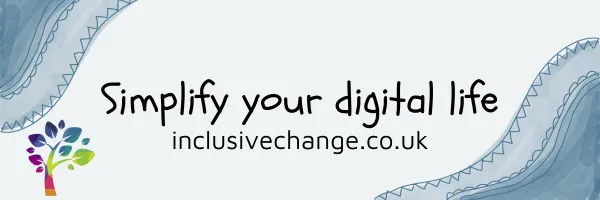
Get Your FREE eBook
A Practical guide to Simplify your Digital Life
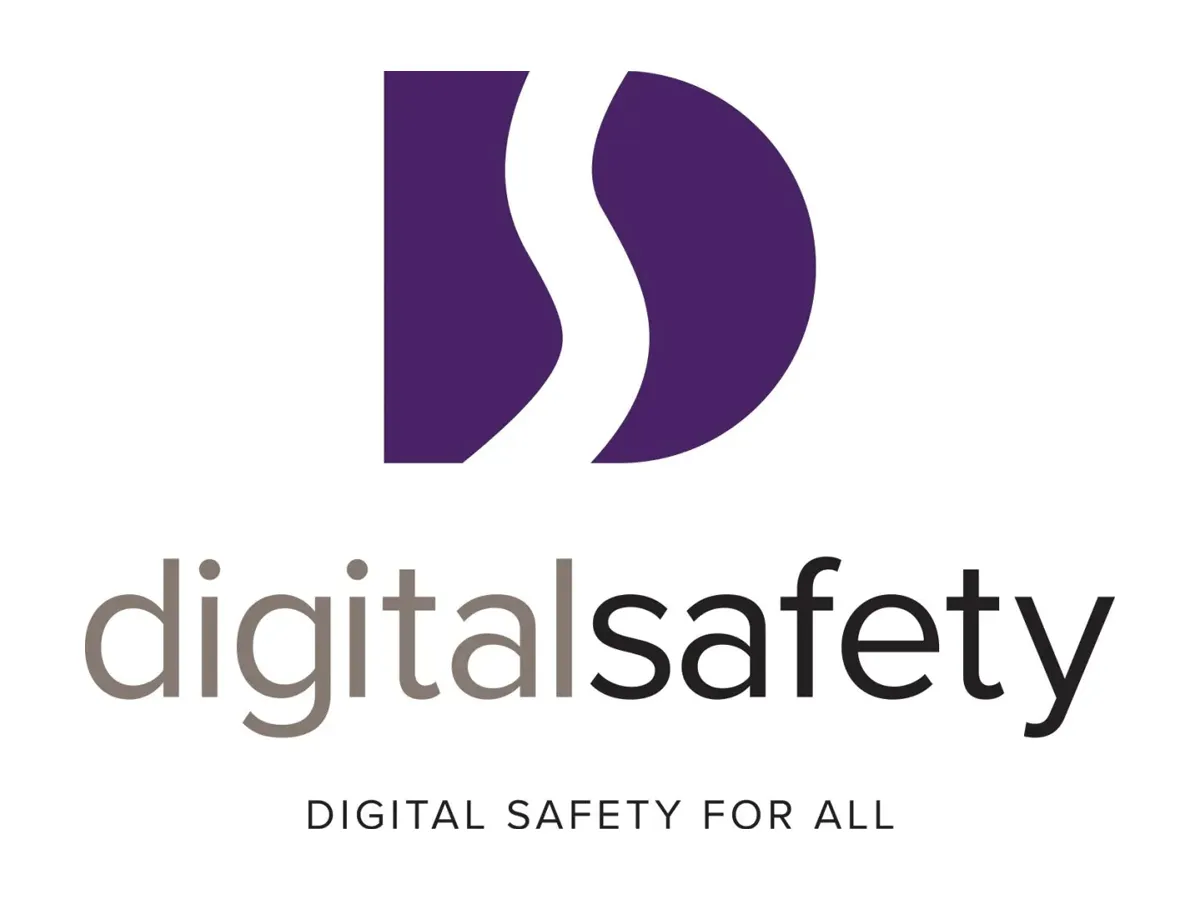
Digital Safety CIC - Online Resources
Exhibitor Information
We think you will agree that our exhibitors contributed so much to the event.
We know that we can tackle the problems we face alone - which is why we love working with others.
Thank you - you made the day INCREDIBLE!
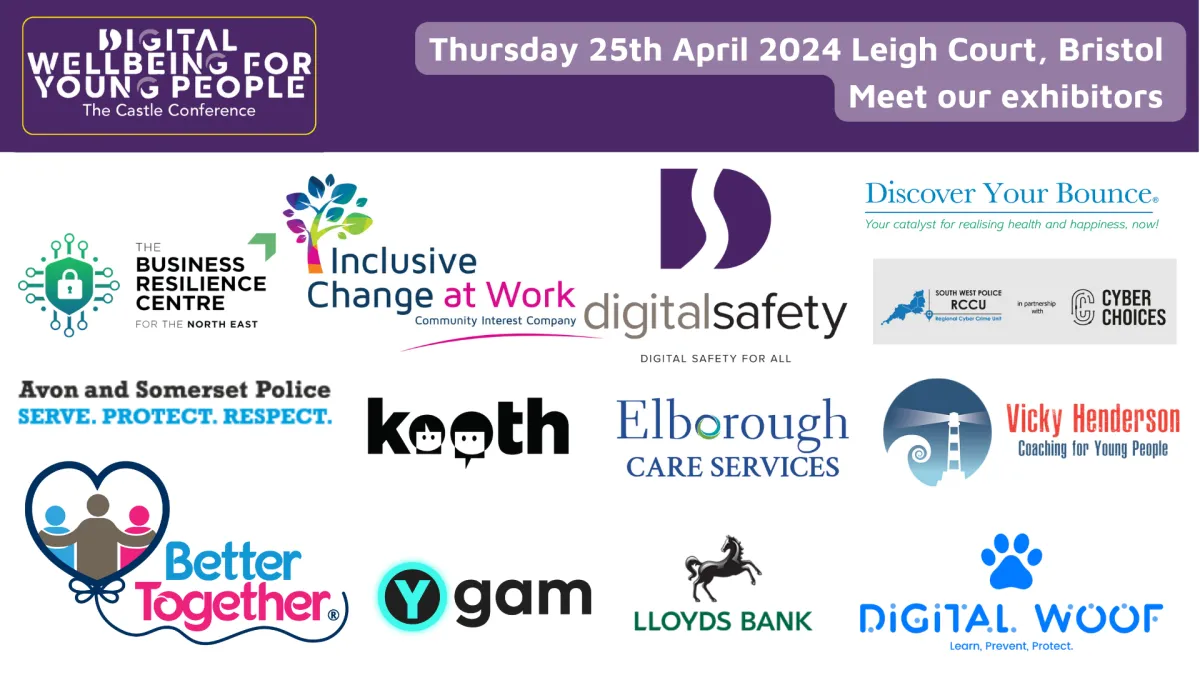
Inclusive Change At Work CiC
Bradbury House
Wheatfield Road
Bradley Stoke
Bristol
BS32 9DB
Companies House: 13271923
ICO registration: ZZB293922
UK register of Learning providers
UKRLP: 10090653
Privacy Policy | Terms and Conditions
Copyright © 2024 Inclusive Change At Work CiC | All Rights Reserved
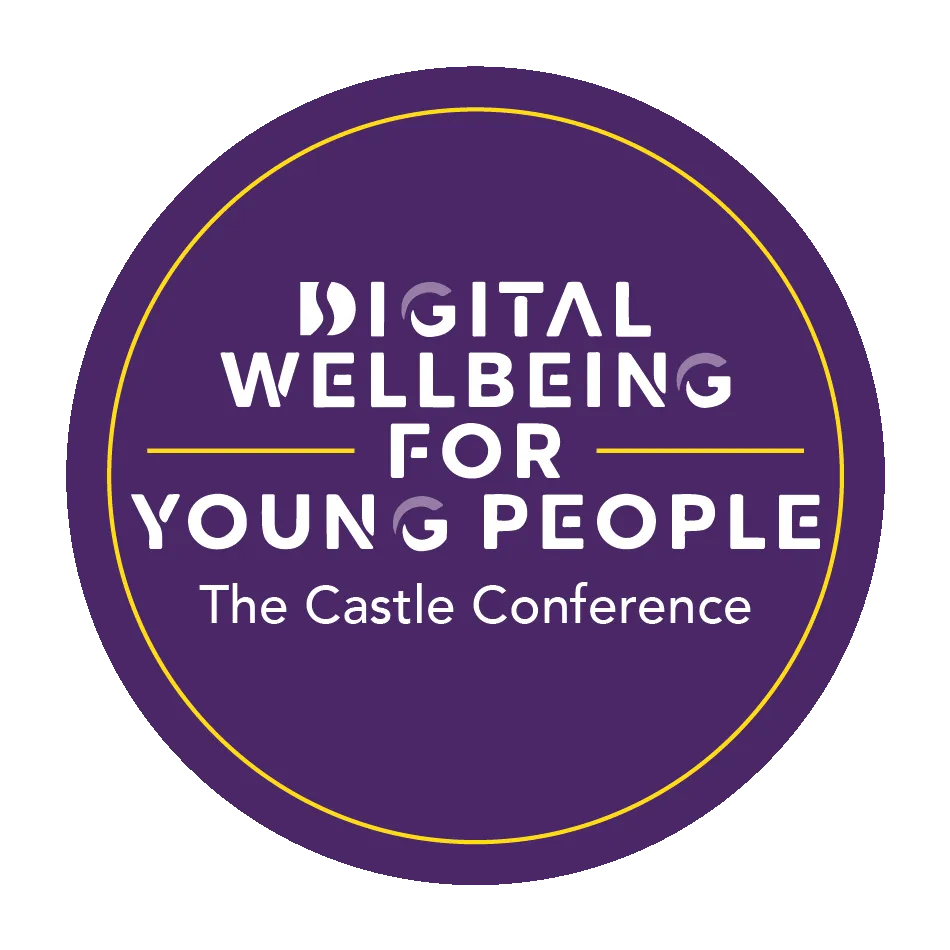
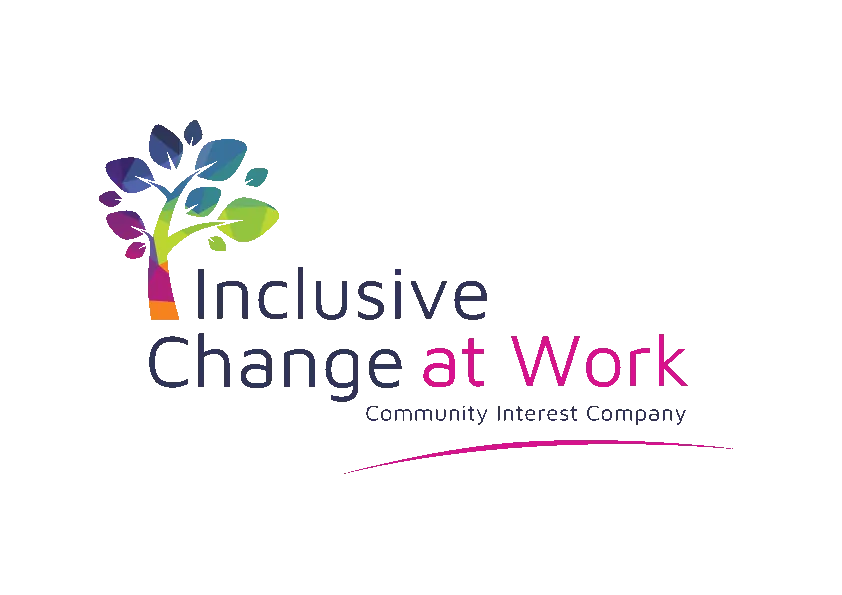
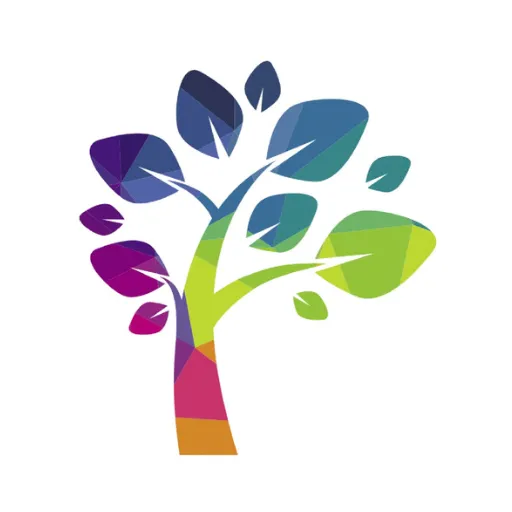


LinkedIn